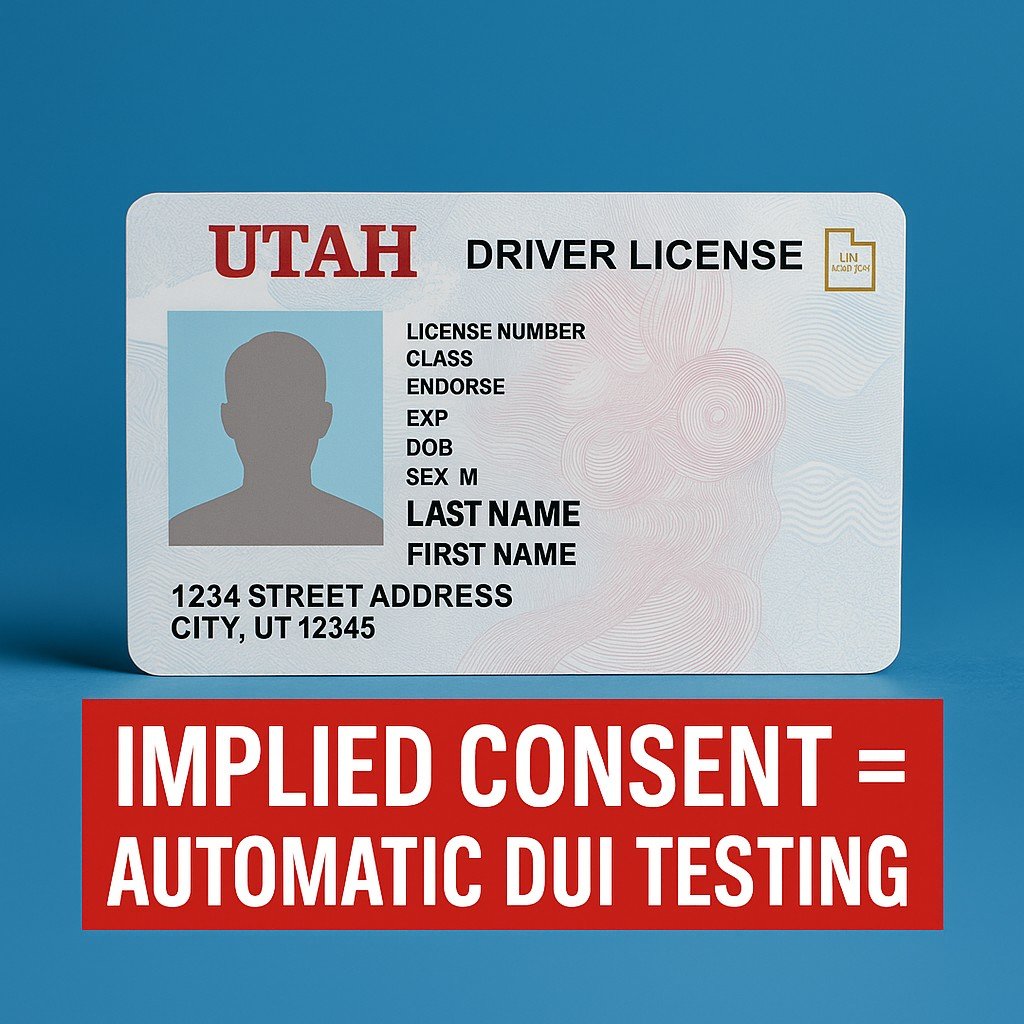
Introduction
In Utah, simply by driving on the state’s roads, you automatically agree to follow the Implied Consent Law. This law means that if a police officer has reasonable grounds to believe you are driving under the influence (DUI), you consent to take a chemical test—such as a breath, blood, or urine test—to measure your blood alcohol concentration (BAC) or detect drugs in your system.
Key Rules of the Law
-
Automatic Consent: Having a Utah driver’s license and operating a vehicle implies that you agree to chemical testing if lawfully arrested for DUI.
-
Types of Tests: Breath, blood, urine, or oral fluid tests may be administered.
-
When Required: After a lawful DUI arrest or when an officer reasonably suspects impairment.
-
Refusal Penalties: Refusing to take a test leads to:
-
First Refusal: Automatic 18-month license suspension
-
Second or Subsequent Refusal: Automatic 36-month license suspension
-
-
Use in Court: Refusal can be used as evidence against you during trial.
Why It Exists
-
To discourage impaired driving by increasing accountability.
-
To ensure accurate evidence is available in DUI investigations.
-
To protect public safety by removing unsafe drivers from the road more quickly.
Takeaway
In Utah, you don’t have the choice to “opt out” of sobriety testing if arrested for DUI. Refusing doesn’t protect you—it actually makes penalties harsher. The safest way to avoid problems with implied consent is simple: don’t drink or use drugs if you plan to drive.
